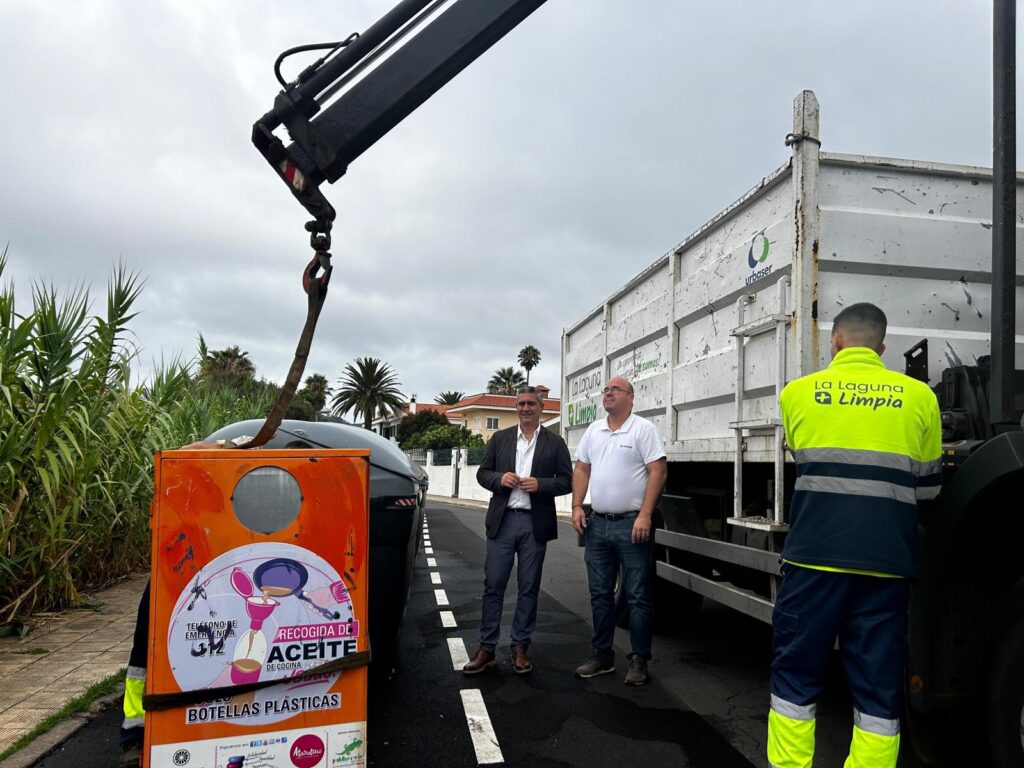
SANTA CRUZ DE TENERIFE, May 14. (EUROPE PRESS) –
The Official College of Agricultural Technical Engineers of Tenerife (COITATE) has unanimously approved to join as a member of the Agricolae Mundi Foundation, founded by various Professional Colleges of Agricultural Engineers of Spain with the aim of contributing to rural development and training in agricultural matters in any country in the world.
The incorporation has materialized in an informative act that has taken place at the University of La Laguna and that has been presented by the president of COITATE, Luis Alberto Herrera, who has been accompanied by the president of Agricolae Mundi, Miguel Agulló, and the territorial subdelegate of Agricolae Mundi in the province of Santa Cruz de Tenerie, Sara Velasco.
The secretary of the Foundation, Carlos Fernández, coordinator of the UTUNBU development project, which Agricolae Mundi is carrying out in Mozambique, and Father Jorge Alberto Bender, local counterpart on the ground for this same project, have also participated online.
“Our presence in Agricolae Mundi will provide great value both in the projects that the foundation has in Africa and in those that may arise on the islands. Joining the solidarity right on the 75th anniversary of our College, we think it is a nice way to highlight everything that Agricultural Engineering has contributed to the development of the agricultural and livestock sector in the Canary Islands, and how much it still has to contribute here and anywhere in the world that needs us”, said Luis Alberto Herrera, president of COITATE.
The book ‘Hongos Xilófagos del arbolado urbano de Madrid’, by Pablo Pérez Daniels, a doctor in Biology and an expert in mycology, and Juan Manuel Borrajo Milán, a Forestry Engineer, was also presented at the event.
The College of Agricultural Technical Engineers of Tenerife is the fifth to join the Agricolae Mundi Foundation. The ITA Schools of Alicante, Asturias and Aragón were the founding members.
Recently, the ITA College of Lugo has joined and very soon the College of Agricultural Technical Engineers of Las Palmas will also join, which has unanimously approved its incorporation. The process will culminate in a few weeks when the Foundation approves it by assembly.
HELP RURAL DEVELOPMENT FROM AGRICULTURAL ENGINEERING
The particularity of Agricolae Mundi is its spirit of helping development from the knowledge provided by Agricultural Engineering.
The technique is behind a crop being sustainable, allowing a community to be fed, or increasing its production to generate economic resources, among other aspects.
This knowledge resides in the Agricultural Engineers and is the one that is being applied in the development projects that Agricolae Mundi is undertaking both in Spain and in other countries.
A good example is the work that has been carried out in the town of Jecuá, in Mozambique, for two years. There, supported by the Franciscan community headed by Father Jorge Alberto Bender, an experimental farm has been built in which work is being done to improve plant varieties and breeds of farm animals, to reinforce their adaptation and productivity.
Several projects are also being managed in Spain. For example, in Asturias they are working with an institute in Oviedo on the installation and development of school gardens to be exploited by students with attention deficit. The students who have participated in the project have shown notable improvements in sociability and school performance.
In Alicante, Agricolae Mundi works in the district of Barbarossa, Orihuela, in cooperation with the Asociación Payasos del Espíritu Santo, in the ‘Agriculture with Spirit’ project, which aims to convert a farm with a habitable cave, irrigation water well and land for cultivation, in residence for the mentally ill with difficulties. There, the installation of photovoltaic panels, an orchard for self-consumption and a cultivation of aromatic plants are projected.
The incorporation of the College of Agricultural Technical Engineers of Tenerife is another boost for the Foundation and a specific reinforcement for development projects, especially in Africa.
















